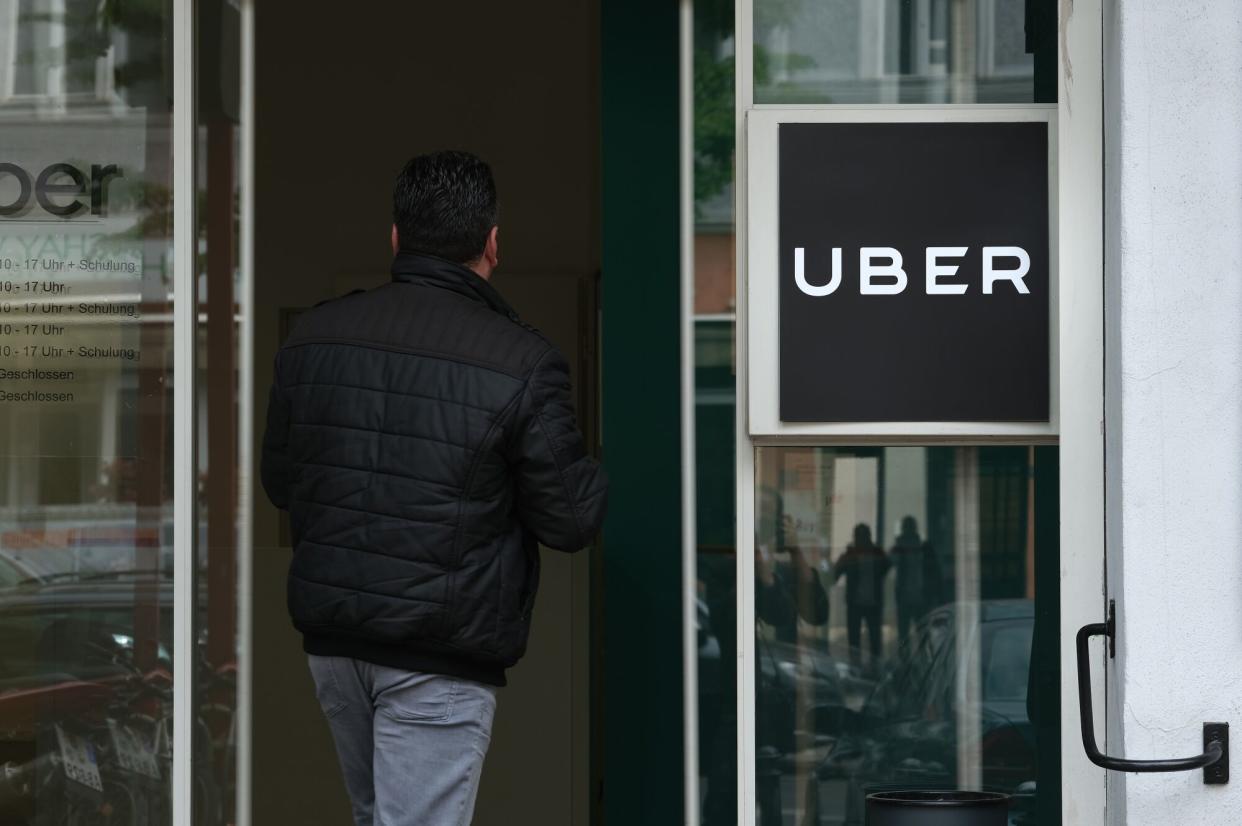EU Backs Watered-Down Labor Plan for Uber, Deliveroo Workers

(Bloomberg) -- European Union countries reached a compromise Monday that breaks a logjam on planned rules over workers’ rights in the gig economy by keeping the most important decisions in the hands of member states.
Most Read from Bloomberg
One of the Most Infamous Trades on Wall Street Is Roaring Back
Stock Traders Bracing for Worst Shrug Off Hot CPI: Markets Wrap
The agreement marks a turning point in the EU’s years-long efforts to set clearer employment rights for millions of delivery couriers and drivers who get work from online platforms, such as those offered by Uber Technologies Inc. and Deliveroo Plc. The issue has pitted businesses and unions against each other in court battles around the world.
The latest proposal from Belgium, which holds the EU’s rotating presidency, would allow individual countries to decide when a worker should count as an employee and qualify for benefits like sick pay, after a previous attempt that would have set bloc-wide employment criteria failed to get the necessary support in December.
EU jobs commissioner Nicolas Schmit hailed the agreement as a “major step forward” in an emailed statement, though businesses affected have criticized the planned rules.
Move EU, a trade group that represents Bolt, Uber and Free Now, said it regrets the decision, which “fails to achieve a harmonized approach across the EU, creating even more legal uncertainty for ride-hailing drivers,” according to a statement from the group’s chair, Aurelien Pozzana.
A statement by Uber said the decision would “maintain the status quo today, with platform worker status continuing to be decided country-to-country and court-to-court” and also called for workers to maintain independence while receiving employment protections.
Unions, however, reacted more positively to the agreement. Ludovic Voet, of the European Trade Union Confederation, said in a statement that “millions of people working through digital platforms will no longer be cheated out of minimum wages, sick pay, holiday pay and social security” and called on EU countries “to prepare for rapid implementation.”
The regulation would impact how workers can be managed by digital platforms. It sets limits on the use of algorithms, banning the firing of workers based on decisions made by automated systems.
The so-called platform work directive still needs to be formally adopted by the European Parliament and EU member states, after which countries will have two years to incorporate the rules into their national legislation, according to a press release.
Read more: Industry Slams Provisional EU Deal on Gig Workers’ Labor Rights
(Updates with company, union and officials’ reactions from fourth paragraph)
Most Read from Bloomberg Businessweek
Academics Question ESG Studies That Helped Fuel Investing Boom
Luxury Postnatal Retreats Draw Affluent Parents Around the US
Gold-Medalist Coders Build an AI That Can Do Their Job for Them
How Apple Sank About $1 Billion a Year Into a Car It Never Built
Primaries Show Candidates Can Win on TikTok But Lose at the Polls
©2024 Bloomberg L.P.

 Yahoo News
Yahoo News 

